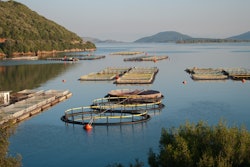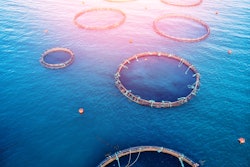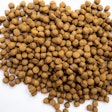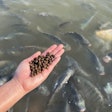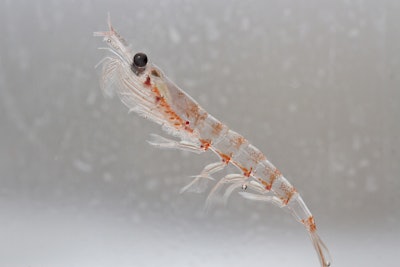
Although the relatively high cost means krill may never achieve the same commodity status as other marine ingredients, it could still offer health benefits when used to supplement diets for non-salmonid species, according to a recent review of existing scientific studies.
Research on the use of krill in aquafeed has mostly focused on salmon diets, but growing interest in industry diversification motivated a review of existing data in other species, according to Kiranpreet Kaur, director of aquaculture research and development at Aker Qrill Company.
And there is no shortage of potential benefits, according to the review article Kaur wrote for the journal Aquaculture with co-author Silvia Torrecillas, a fish nutrition and health researcher the Institute of Agrifood Research and Technology. Krill-based feed ingredients like krill meal, krill oil, and krill hydrolysates may promote growth, feed efficiency and reproductive performance. Proteins and omega-3 fatty acids in krill may be more bioavailable than those in other marine ingredients, according to the article.
Krill's higher cost could limit its use for lower-value species like sea bream, sea bass and tilapia. But it could still play a role as a timely supplement to support health during critical life stages, Kaur said.
For example, krill could be used to improve egg health when fed to broodstock, or to improve survival in early life stages, Kaur said. He also suggested it could be used to combat the effects of heat stress or crowding.
“It's a functional ingredient. It's not a commodity,” he said.
Krill could also play a role in diets for organic fish products intended for health or eco-conscious consumers willing to pay a premium for these attributes, Kaur said. But overall his review with Torrecillas recommends future research focus on the cost-effectiveness of krill compared to other functional feed ingredients to identify the best potential uses of krill products in non-salmonid diets.


